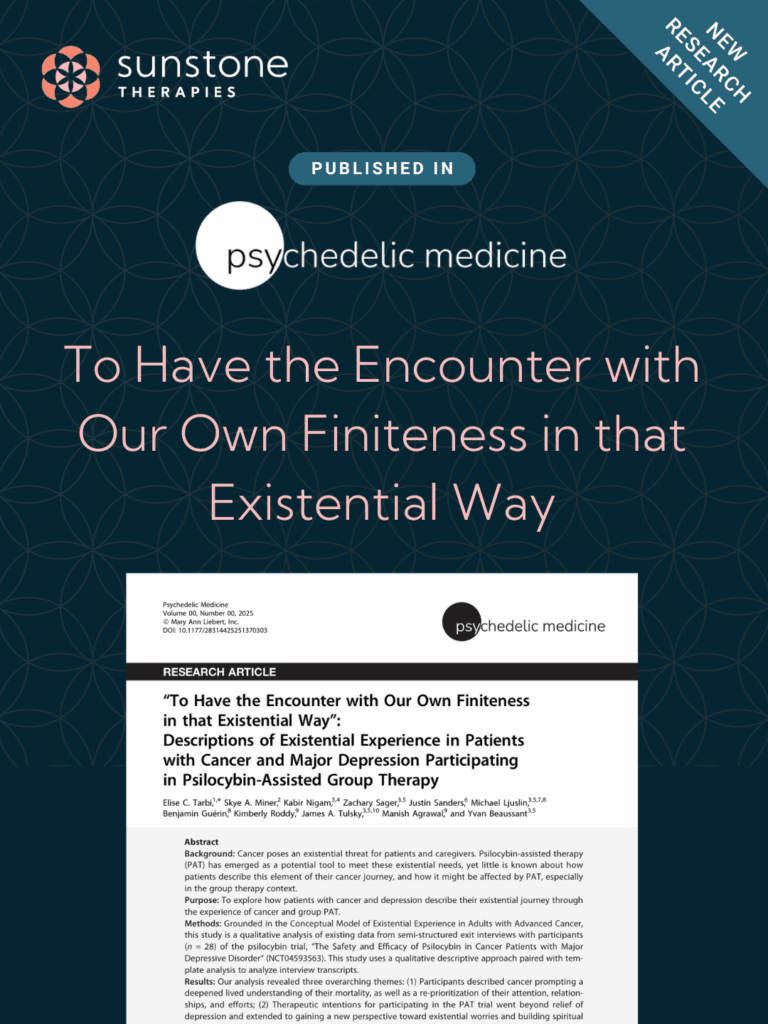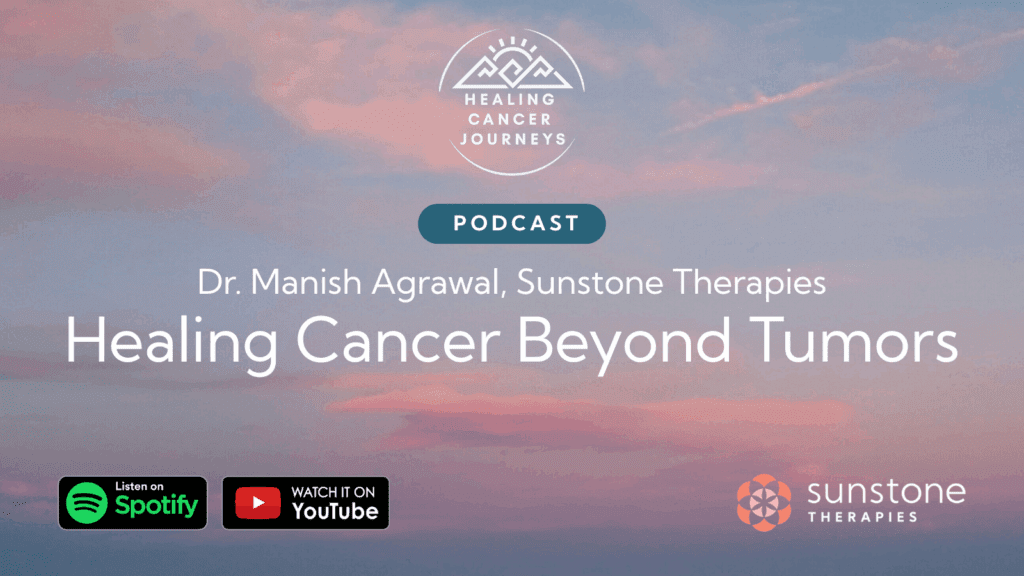Researchers from Sunstone Therapies, Dana-Farber Cancer Institute, Harvard Medical School, and the University of Vermont have published new findings in Psychedelic Medicine that help provide a deeper understanding of how psilocybin-assisted group therapy can help people with cancer and depression navigate profound existential challenges.
The paper, titled “‘To Have the Encounter with Our Own Finiteness in that Existential Way’: Descriptions of Existential Experience in Patients with Cancer and Major Depression Participating in Psilocybin-Assisted Group Therapy” (Tarbi et al., 2025), offers a qualitative analysis of patient experiences from Sunstone’s landmark clinical trial, The Safety and Efficacy of Psilocybin in Cancer Patients with Major Depressive Disorder, published in the Journal of Oncology, June 2022.
Exploring the Existential Dimension of Healing
The study examined in-depth interviews with 28 participants who received psilocybin-assisted therapy (PAT) in a novel group setting. Patients described how the combined experience of cancer and psilocybin therapy prompted deep reflection on mortality, meaning, and connection.
Researchers identified three major themes:
- Facing Mortality and Reprioritization
Cancer prompted a lived awareness of mortality, leading participants to reassess relationships, priorities, and how they spend their time. - Seeking Perspective and Spiritual Strength
Patients joined the trial not only for relief from depression but also to gain new perspectives on death, grief, and purpose. - Experiencing Healing Shifts
Participants described psilocybin-assisted therapy as a life-changing process, fostering greater meaning, peace, agency, and connectedness with others and the world around them.

Group Therapy as a Catalyst for Connection
The study highlights how the group therapy format may amplify the healing potential of psilocybin. Patients reported that sharing the experience and integrating it together enhanced feelings of belonging and supported a continued deepening of meaning and connection.
While the content may be different, the context of how we make meaning in our lives and the things that happen to us, that’s a universal experience. These are universal questions when something as life-altering as cancer happens to people.
The power of what happens in group therapy is it normalizes the experience that people have. They learn that the things that they’re personally struggling with are not just their personal struggles. – Kimberly Roddy, COO and Co-Author
Advancing Whole-Person Cancer Care
Sunstone’s Dr. Manish Agrawal and Kimberly Roddy, co-authors of the study, note that these findings expand the understanding of psilocybin-assisted therapy as not only a potential treatment for depression but also a meaningful intervention to address existential suffering in serious illness.
The study builds on previous quantitative findings showing that 80% of participants in the trial experienced a sustained improvement in depressive symptoms, with half achieving full remission at eight weeks.
Cancer challenges patients in every dimension—physical, emotional, and spiritual. This work helps us see how psilocybin-assisted group therapy can support healing of the whole person by addressing all three dimensions. – Dr. Manish Agrawal, CEO and Co-Author
About the Publication
Tarbi, E. C., Miner, S. A., Nigam, K., Sager, Z., Sanders, J., Ljuslin, M., Guérin, B., Roddy, K., Tulsky, J. A., Agrawal, M., & Beaussant, Y. (2025). “To Have the Encounter with Our Own Finiteness in that Existential Way”: Descriptions of Existential Experience in Patients with Cancer and Major Depression Participating in Psilocybin-Assisted Group Therapy. Psychedelic Medicine, August 2025.


